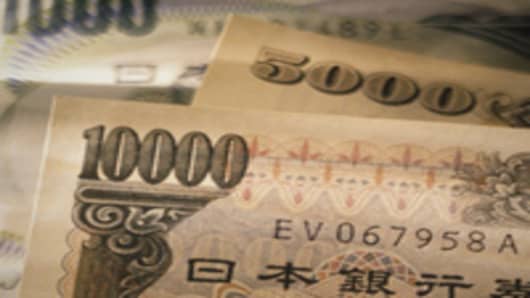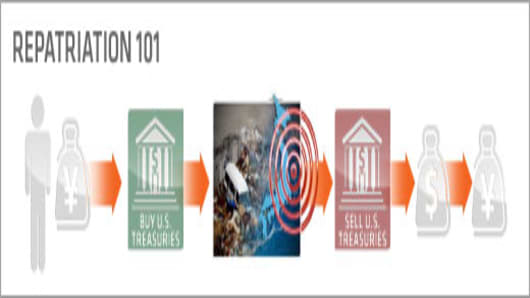In the wake of the crisis in Japan, the yen has strengthened dramatically.
This is counter-intuitive. Usually, when a country's economy is expected to weaken, so does its currency. But, currency traders explain, Japan is a unique case.
Imagine you live in Japan where, for the last 20 years, the central bank has kept interest rates at nearly zero in an effort to stimulate the economy. If you put your money in a bank or a certificate of deposit, you earn nothing in interest.
As a result, you as a Japanese individual are far more likely to invest in overseas assets, like US Treasuries, for instance, to a much greater degree than those in other countries. While long-term Treasuries are only paying interest rates of 3- to- 4 percent, that's still a lot better than zero.




